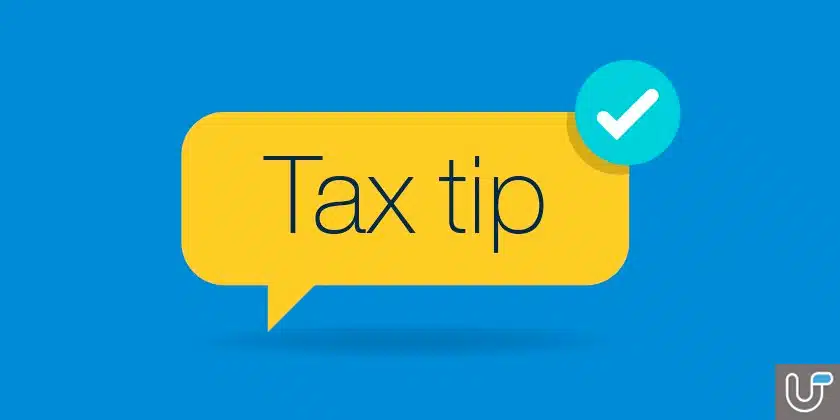Taxes are just one of those things that are an unavoidable part of doing business. So, if you’re a sole trader or own a small business, it means you need to be familiar with the Australian Taxation Office’s Business Activity Statements (BAS). Most businesses need an Australian business number (ABN) to register for GST and lodge their BAS, and non profits have specific thresholds for BAS obligations. Below is a quick guideline to your obligations and how to avoid getting penalized.
What is a Business Activity Statement?
What BAS essentially aims to do is summarize the amount of goods and services tax (GST), as well as other tax obligations for businesses over a certain period of time, usually every quarter. The BAS statement is a mandatory reporting document for GST and other tax obligations, and understanding your reporting cycle (monthly or quarterly) is crucial.
Here are some tax obligations that can be reported via BAS:
- Fuel Tax Credits
- Pay as you go (PAYG) tax withheld
- Pay as you go (PAYG) income tax instalment
- Wine Equalisation Tax (WET)
- Luxury Car Tax (LCT)
- Fringe Benefit Tax (FBT) instalment
The form of every businesses’ BAS will look different from each other. This is because businesses have different tax obligations. The BAS form will ask businesses to sum up the amount they are owed and owning for each tax obligation. Depending on whether the tax obligation is positive or negative, you’ll pay the balance or get a refund from the ATO. Accurate financial statements, knowing the GST inclusive value of your sales and purchases, and tracking GST paid are essential for correct BAS reporting.
Who has to submit a BAS?
If you’re a sole trader with a reasonable turnover, then there is a good chance you are registered for GST, which means you have to submit a regular BAS. Also companies with annual turnover of more than $75,000 will need to submit a BAS too. GST turnover determines whether a business lodges BAS monthly or quarterly, and BAS monthly is required for businesses with GST turnover over $20 million.
When do you submit your BAS?
The ATO will send you a reminder when it’s time to lodge. This can be on a monthly or quarterly basis. However, you can still submit your BAS online through the ATO’s Business portal or other provided methods. Note that if your annual turnover exceeds $20 million that you’ll be required to report your GST every month. In addition, you’re also expected to report your PAYG withholding if it’s beyond $25,000.
Most businesses, especially small business owners, lodge a quarterly BAS, and quarterly BAS deadlines are important for compliance. The due date for the lodgement and payment is usually displayed on the BAS form with the following quarterly deadlines:
- Q1 (July, August, September): 28 October
- Q2 (October, November, December): 28 February
- Q3 (January, February, March): 28 April
- Q4 (April, May, June): 28 July
How to avoid BAS penalties
You’ll be liable for a fine of $110 for each 28th day overdue if you don’t lodge your BAS. More still if you’re BAS submission contains mistakes, regardless of whether they are genuine or not, you’re going to be fined. Even if your business has not paid any expenses in the period or earned any income, you’ll still be required to submit your BAS. Double-checking entries and timely lodgement are essential to avoid penalties.
You may want to contract a bookmaker to handle all your payments for you. This way, you can lessen the burden for late payment, as well as remove your liabilities for any fines and penalties. Consulting BAS agents, a registered agent, registered tax agent, or a tax professional can provide expert assistance with BAS preparation and lodgement.
Managing your BAS effectively is part of everyday business life. However, by using the right tools and getting organized, it shouldn’t be much trouble. You can lodge online using the ATO website, ATO’s business portal, or other online services, and using your preferred electronic channel can streamline the process. Managing your own BAS online and practicing effective BAS management can help you avoid penalties and stay compliant. Understanding how much GST to report and claim, and keeping track of GST paid, is essential for accurate BAS lodgement.
If you’re looking for a quick and simple loan solution to get yourself set-up with a new bookeeper, talk to Unsecured Finance Australia about how we can help you meet your business finance needs.
Introduction
The Business Activity Statement (BAS) is a vital document for every business owner in Australia, acting as a summary of your business’s revenue and key expenses over each reporting period. Lodging your BAS correctly and on time is essential for staying compliant with the Australian Taxation Office (ATO) and avoiding unnecessary penalties. Whether you’re a sole trader or run a growing company, understanding how to manage your BAS, handle bas payments, and keep up with your tax obligations is crucial for smooth business operations. In this guide, we’ll walk you through the essentials of preparing and lodging your BAS, managing payments, and steering clear of common pitfalls, so you can focus on running your business with confidence.
Understanding BAS: What You Need to Know
A Business Activity Statement (BAS) is a form that businesses registered for goods and services tax (GST) must submit to the ATO. This statement is used to report and pay a range of taxes, including GST, pay as you go (PAYG) withholding tax, and PAYG income tax instalments. BAS also allows businesses to claim fuel tax credits, report fringe benefits tax (FBT) instalments, and account for other taxes such as luxury car tax (LCT) and wine equalisation tax (WET). Understanding each component of your business activity statement is essential, as it ensures you claim fuel tax credits and other tax concessions correctly, and meet all your tax obligations. By keeping up with your BAS reporting, you’ll stay compliant with services tax laws and avoid issues with the ATO.
Preparing and Lodging Your BAS
Getting your BAS right starts with good preparation. Accurate financial records, including tax invoices and receipts, are the foundation for a correct business activity statement. Many small businesses use accounting software to streamline this process, as these tools can help you track GST, PAYG, and other tax obligations throughout the reporting period. When it’s time to lodge your bas, you have several options: you can submit your BAS online through the ATO’s Business Portal, use a registered tax or bas agent, or lodge through compatible business software. Working with a registered tax or bas agent can provide peace of mind, as they are registered with the Tax Practitioners Board and can help ensure your BAS is accurate and submitted on time. Whichever method you choose, make sure your records are up to date and your lodgement is complete to avoid any issues.
Managing BAS Payments
Staying on top of your bas payments is key to maintaining healthy cash flow and avoiding penalties from the ATO. You can pay your BAS online, over the phone, or in person at Australia Post, making it easy to choose the method that suits your business best. It’s important to keep track of payment due dates and ensure your payments are made on time, as late payments can result in additional charges. If you’re experiencing cash flow challenges, the ATO offers payment plans to help you manage your obligations without putting undue strain on your business. Effective cash flow management, including setting aside funds for your BAS, will help you meet your tax obligations and keep your business running smoothly.
Common BAS Mistakes (NEW)
Even the most diligent business owners can make mistakes when managing their business activity statements. Some of the most common errors include miscalculating GST amounts, forgetting to include all relevant business purchases or sales, and failing to claim eligible GST credits or fuel tax credits. Others may overlook reporting certain taxes, such as fringe benefits tax or luxury car tax, or miss the BAS lodgement due date altogether. Inaccurate or incomplete financial records can also lead to errors on your BAS, increasing the risk of penalties from the ATO. To avoid these pitfalls, always double-check your figures, keep thorough financial records, and use reliable accounting software or consult a registered tax or bas agent. Staying organized and proactive with your BAS process will help you lodge your BAS correctly and on time, ensuring your business remains compliant and penalty-free.




